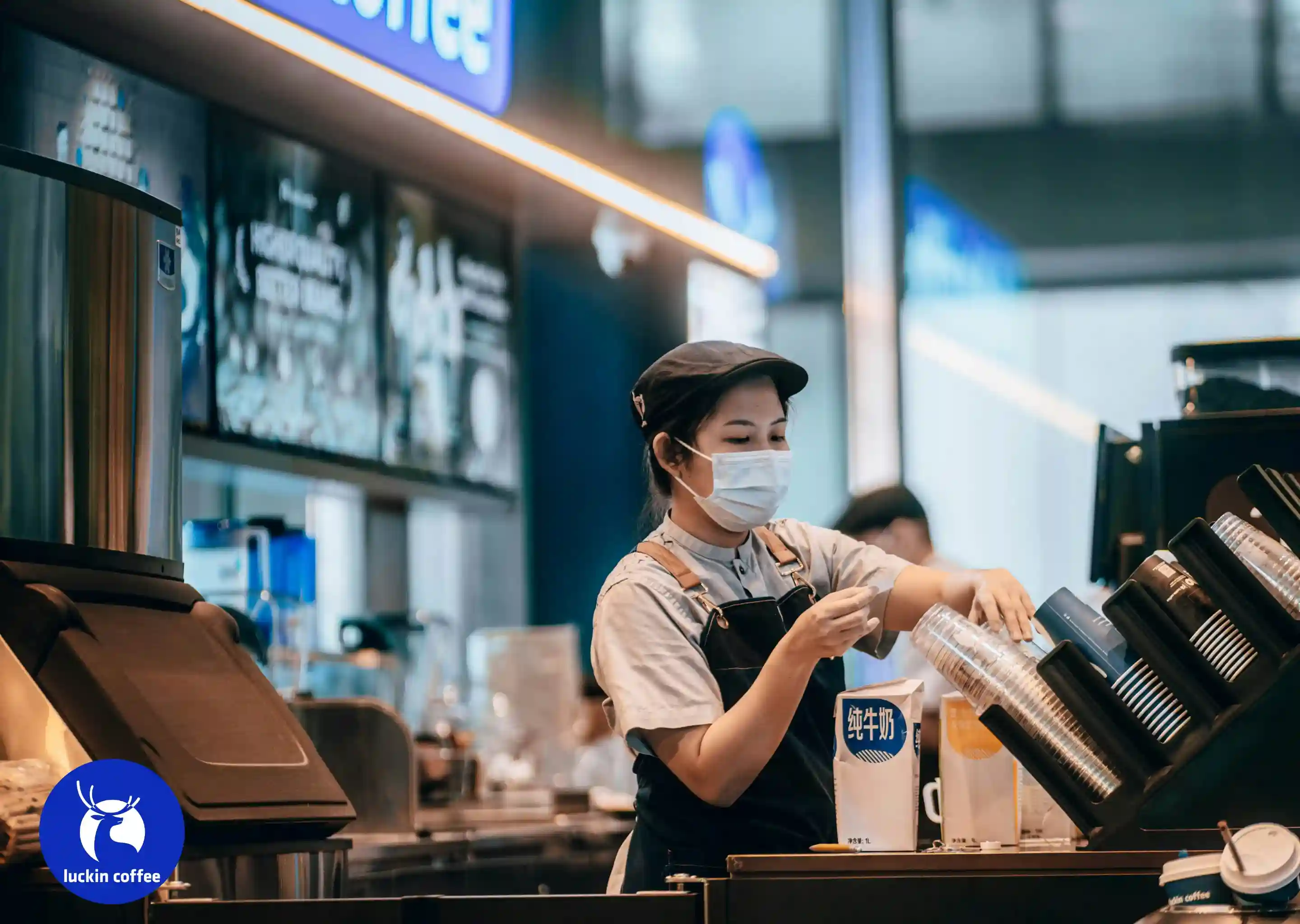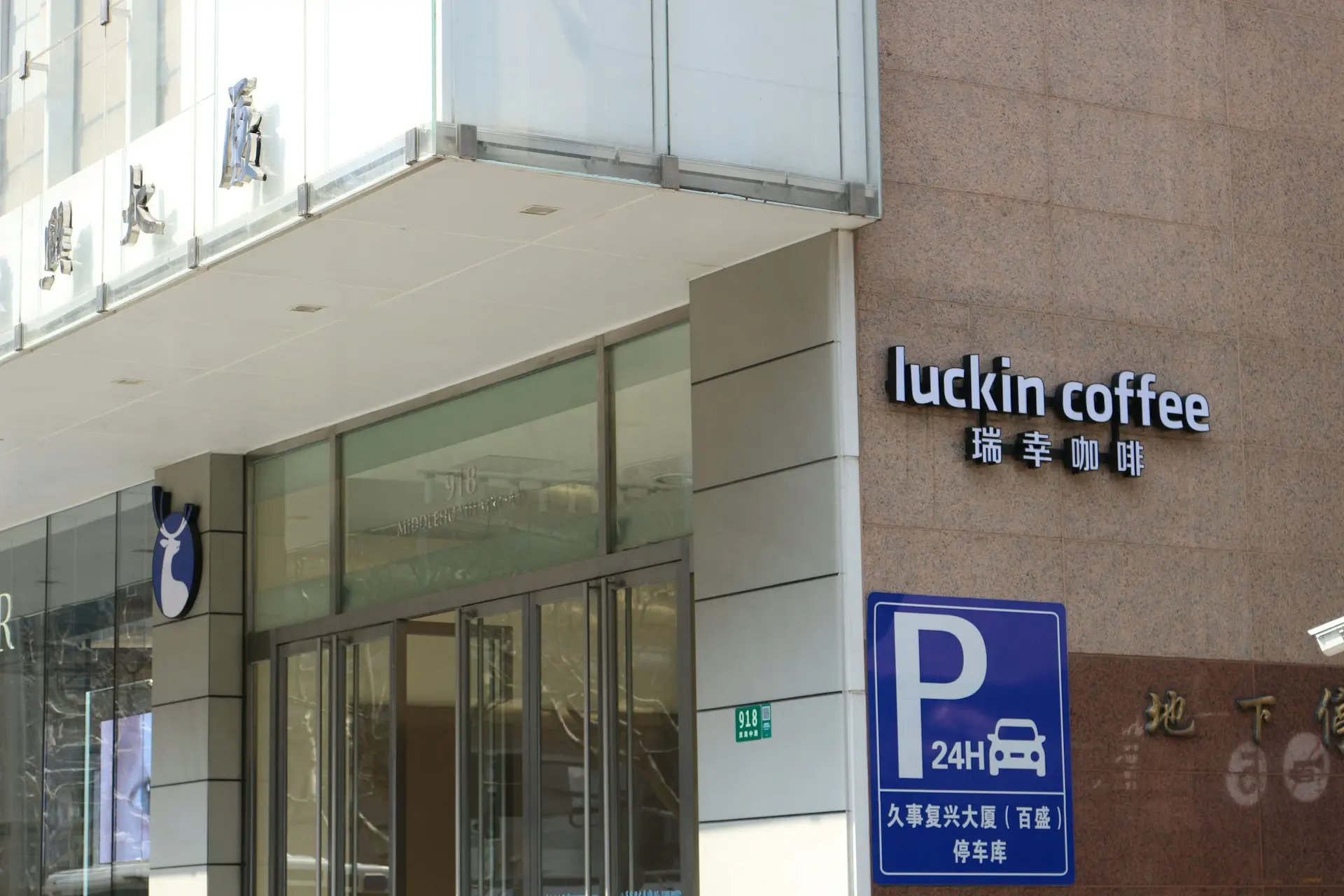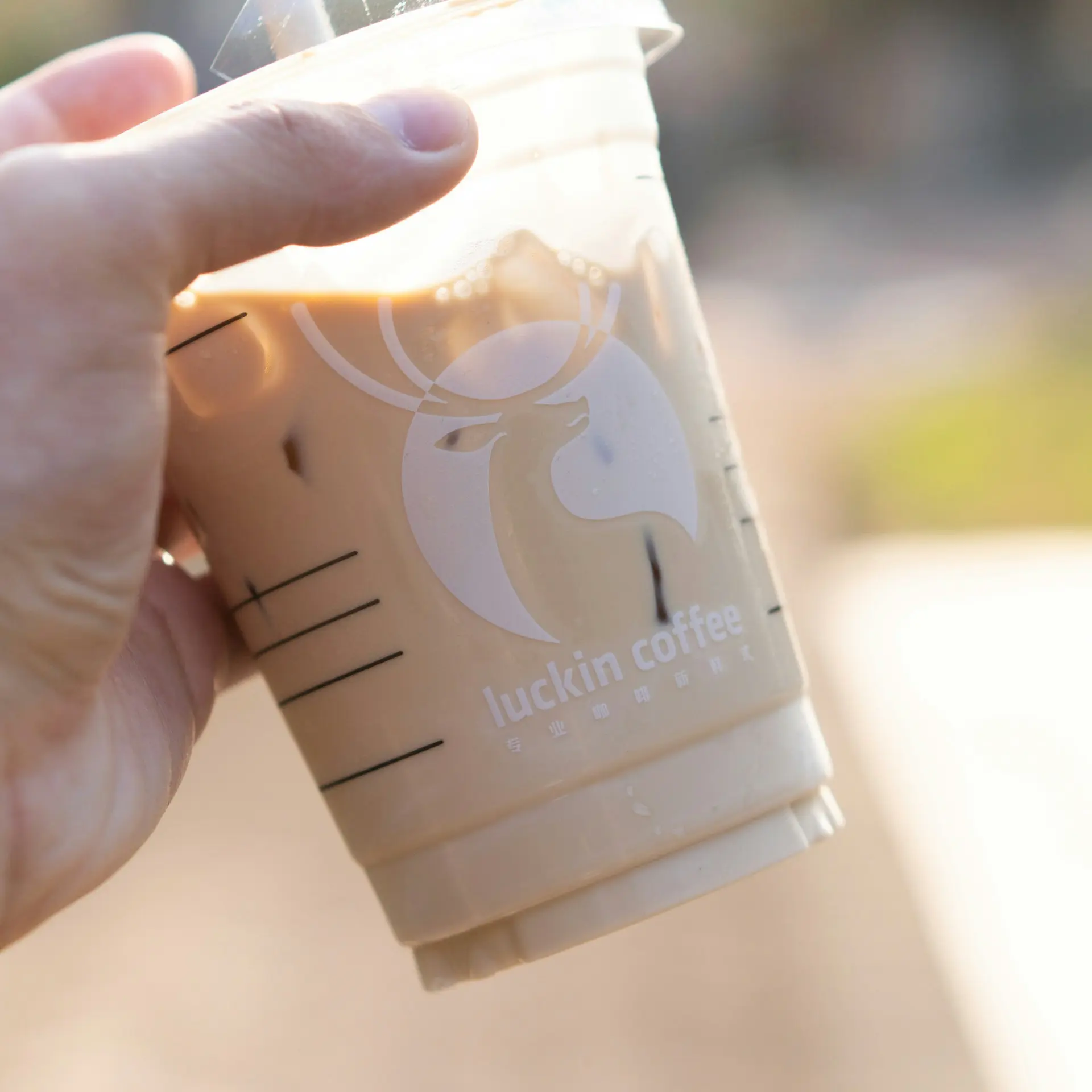Luckin Coffee was founded in 2017 and is headquartered in Xiamen, China. It runs an app-first coffee chain built around pick-up and delivery, with smaller store formats designed for speed and high throughput rather than long café stays.
The company sells coffee, tea-based drinks, and light food, with ordering and payment handled through its mobile app and partner platforms. Luckin frames its mission as “to be part of everyone’s everyday life, starting with coffee,” which fits a model that pushes frequency through convenience and price-led promotions.
By September 30, 2025, Luckin operated 29,214 stores, including 18,882 self-operated and 10,332 partnership stores, and reported 112.3 million average monthly transacting customers in Q3 2025. Store growth is still concentrated in China, while international expansion remains early-stage, with recent openings in Singapore, Malaysia, and the United States. After the 2020 accounting scandal and Nasdaq delisting, Luckin restructured and returned to aggressive unit expansion.




